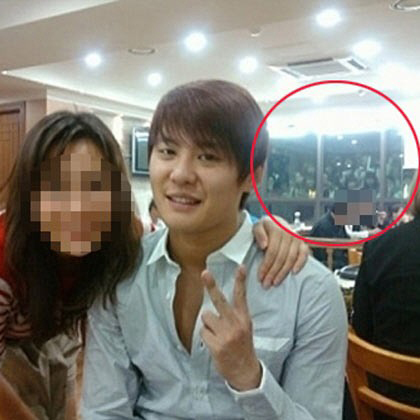The sasaeng fan has long plagued idols since the very beginning of the industry in the 90s.
The South Korean National Assembly voted on March 21 to increase the punishment for stalkers as a response to growing outcry that the penalties for the offense were too lax. Previously, stalking was a misdemeanor; punishable with a fine limited to less than 100,000 Korean Won (P4,364.19) or 29 days in jail.
The new law covers acts of approaching, following, or blocking victims against their own will, waiting for or observing a victim in their place of work, school or residence, causing fear through the mail, telephone, or IT, as legally categorized acts of stalking.
The new punishment is up to three years in prison or 30 million won (P1,309,281.29) in prison. This can be upped to a maximum of five-year imprisonment or a fine of 50 million KRW (P2,181,833.73) when dangerous objects are used as weapons.
Police are now able to take preemptive emergency measures, like restraining orders and barring potential suspects from coming within 100 meters of the victim.

What does this mean for the K-pop industry? The sasaeng fan (known as stalker fans) industry has long plagued idols since the very beginning of the industry in the 90s.
This breed of a fan is an obsessive one, known to stalk or invade the privacy of Korean celebrities, particularly idols and drama actors. Acts include but are not limited to following idols to both public (allowed) and private or unreleased (not allowed) schedules (you can tell if the photos look like they’ve been taken from a height, as a building, or from a tree), booking the same airplane flights to sit near them (sometimes in collaboration with flight agencies), waiting outside their shared accommodations, sneaking into their apartments, having their contact numbers (and immediately knowing when a number has changed), dangerously following their vehicles around and harassing their friends and family members.
Because they end up knowing so much about the object of their obsessions, sasaeng often end up becoming secret keepers of idols, which further places the power dynamics on an uneven tilt.
This behavior is not limited to Korean fans. On 2PM’s recent comeback appearance on the Korean variety show Knowing Brothers, member Ok Taecyeon shared that when he and fellow member Hwang Chansung were asleep in a hotel room in Singapore, fans had somehow found the master key to their room and snuck in. He yelled at them and called the concierge, who gifted the group with a bottle of champagne.
In the past, idols have tried fighting back, from begging them to stop, to themselves getting into physical altercations. This obsession is what stops idols from having healthy relationships with anyone and preys on their mental health.
Because of the previously lax laws regarding stalking, legal recourse was near impossible. In 2020, another 2PM member Nichkhun Horvejkul filed a restraining order against a stalker fan, seeking to have her stop contacting him through calls and text, and requesting the court issue a 2 million Korean Won (P87,243.12) fine if the woman breaks the order.
The court responded by dropping the case.
“The woman stated during the interrogation that she no longer intends to stalk Nichkhun. Since no evidence has been submitted that the woman has committed the same actions for the past three months, it is hard to say that there is a risk for her to repeat the same behavior in the future. However, if the woman contacts or approaches Nichkhun against his wishes, he can seek a separate provisional disposition if the stalker interferes with his life once again,” the ruling goes.
While the effects of the new law have yet to be seen, SM Entertainment (SME) released a statement outlining their plans for a stronger response to those who insist on breaking the law. SME has long been seen as the company whose idol groups, particularly the male ones, suffer the most from the plague of sasaeng fans. This response was welcomed, albeit greeted with a healthy dose of skepticism from fans.
“To protect our agency’s artists, we will let go of the lenient attitude we have held towards sasaengs until now and will take firm and strict legal action without leniency or settlement. We have already secured a considerable amount of related evidence including CCTV and car black box footage, photos and videos that have been taken, phone call records, postal mail, emails, etc. We will continue to secure more related evidence, and we will not only file criminal complaints but also take all possible civil and criminal actions such as filing claims for psychological and monetary damages,” the statement reads.
It will be interesting to see what the ramifications of this new law will have on the future of the industry. Entertainment agencies prioritize fans, knowing that this is where their bread and butter is, but it has long been time to weed out these fans of a particularly destructive nature.
Banner Photo by Hanny Naibaho on Unsplash





